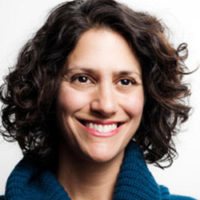
Regine Basha
For the past two decades, Regine Basha has been working as a contemporary art curator, writer, and educator in New York. She holds degrees from New York University and from the Center for Curatorial Studies, Bard College. As the daughter of an Iraqi-Jewish emigré, Sol ‘Silman’ Basha, who played the oud and the kamanja at countless house parties in Montreal, Los Angeles, and New York, Regine (Gina) Basha is herself neither a musician nor a specialized ethnomusicologist but considers herself a music enthusiast and witness to a community that blends Arabic and Jewish cultures. For more information, see bashaprojects.com
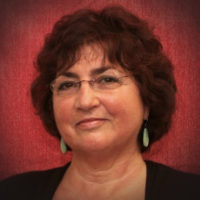
Rina Benmayor
Rina Benmayor is Professor Emerita at California State University Monterey Bay. She has a doctorate in Romance Languages and Literatures from the University of California, Berkeley. She is the author of Romances judeo-españoles de Oriente (Gredos, 1979); co-author of Latino Cultural Citizenship: Claiming Identity, Space and Rights (Beacon, 1997), and Telling to Live: Latina Feminist Testimonios (Duke UPress, 2001); and co-editor of Memory, Subjectivities, and Representation: Approaches to Oral History in Latin America, Portugal, and Spain (Palgrave, 2016), which received the 2016 Oral History Association Book Award. Her most recent project, in collaboration with Dr. Dalia Kandiyoti, involves extensive oral histories of Sephardi descendants applying for Spanish or Portuguese citizenship and a co-edited volume on the same topic. In 2019, she received an National Endowment for the Humanities Faculty Award to write an article on emotion and the pursuit of reparative citizenship.
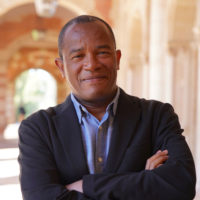
Aomar Boum
Aomar Boum is an Associate Professor in the Department of Anthropology at the University of California, Los Angeles. A historical anthropologist, Boum is interested in the place of religious and ethnic minorities such as Jews, Baha’is, Shias and Christian in post-independence Middle Eastern and North African nation states. He is the author of Memories of Absence: How Muslims Remember Jews in Morocco (Stanford University Press, 2013). He is also the co-author of the Historical Dictionary of Morocco (with Thomas K. Park, 2016), The Holocaust and North Africa (with Sarah A. Stein, 2019), and the Historical Dictionary of the Arab Uprisings (with Mohamed Daadaoui, 2020).
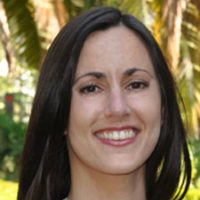
Julia Phillips Cohen
Julia Phillips Cohen is an Associate Professor in the Program in Jewish Studies and the Department of History at Vanderbilt University. She is the author of two award-winning books, Becoming Ottomans: Sephardi Jews and Imperial Citizenship in the Modern Era (New York: Oxford University Press, 2014), and—together with Sarah Abrevaya Stein—Sephardi Lives: A Documentary History, 1700-1950 (Stanford: Stanford University Press, 2014). Her articles have appeared in various venues, including American Historical Review, International Journal of Middle East Studies, Jewish Social Studies, Jewish Quarterly Review, and AJS Perspectives. Cohen is currently on the board of the Association for Jewish Studies, the advisory council of the Center for Jewish History, and the editorial boards of AJS Review and the Journal of the Ottoman and Turkish Studies Association. She has previously served as an editorial board member for the International Journal for Middle East Studies and as Sephardi/Mizrahi Division Chair for the Association for Jewish Studies.
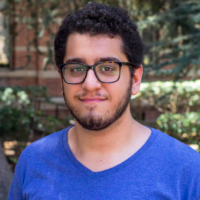
Max Modiano Daniel
Max Modiano Daniel is a doctoral candidate in the History Department at UCLA. His dissertation-in-progress is currently titled “A Sephardic Century: The Transnational Entanglements of a Los Angeles Community, 1893-1992.” Recently, he was the Rabbi Joachim Prinz Memorial Fellow at the American Jewish Archives in Cincinnati, Ohio and worked in the Center for Primary Research and Training at UCLA Library Special Collections, processing the Sephardic Temple Tifereth Israel Archives. For three years, he was co-director of UCLadino, a student-run Judeo-Spanish language study group.
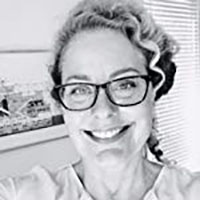
Leslie Erganian
Leslie Erganian is an American artist, designer, and writer. Her artwork is in the permanent collections of the California Museum of Photography and Xerox Corporation. She contributed her design talents to the production of feature film projects for MGM, DreamWorks, Warner Bros., and Showtime. She has been a writer and correspondent for NBC, Discovery, and Hallmark. Leslie was a contributing writer to the architectural monograph Raphael Soriano for Phaidon Press, and is co-author of NEW WEST: Innovating at the Intersection, published by Hirmer Verlag. She graduated with a Master of Fine Arts in Art + Design from the University of Illinois at Urbana-Champaign, and obtained an M.F.A. in film production from the University of California, Los Angeles. Leslie is a lifetime member of the Society of Architectural Historians, Southern California Chapter and a member of the Screen Actor’s Guild.
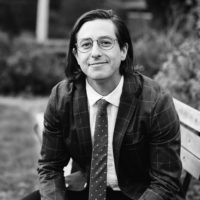
Maxwell Greenberg
Maxwell Greenberg is a PhD candidate in the César E. Chávez Department of Chicana/o Studies at UCLA. His work explores Jewish histories of the Americas, transnational/border commercial networks, and race formation. Maxwell’s dissertation research employs traditional archival methods to trace untraditional/de-centered histories: Jewish immigration, colonization and race in the US-Mexico border region in the late modern period. He is the 2020 scholar-in-residence at the Jewish History Museum in Tucson, Arizona and was the winner of the 2018-2019 Jack H. Skirball Fellowship in Modern Jewish Culture. Greenberg’s work has been published in Jewish Currents and Protocols. He holds a B.A. in Spanish Literature from Kenyon College and an M.A. in Chicana/o Studies from UCLA.
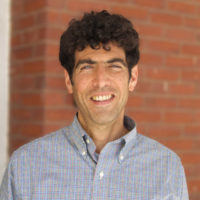
Michael Hoberman
Michael Hoberman teaches American literature at Fitchburg State University, in Massachusetts. His recent book, A Hundred Acres of America: The Geography of Jewish American Literary History (Rutgers University Press, 2018) begins with an exploration of Carvalho’s legacy as a chronicler of the western frontier.
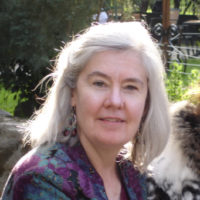
Maureen Jackson
Maureen Jackson is an independent scholar of Ottoman, Turkish, & Sephardic Studies. She conducts research on Jewish and multiethnic musical cultures in Ottoman and Turkish contexts as a lens for understanding cultural, economic, political, and immigrant histories. She is the author of Mixing Musics: Turkish Jewry and the Urban Landscape of a Sacred Song (Stanford University Press, 2013), awarded the National Jewish Book Award in Sephardic Culture. She has taught at the University of Washington and Carleton College; served as a Harry Starr Fellow at Harvard University; and received research support from the Fulbright Foundation, NEH, and ARIT, among other foundations. As a vocalist, she was a member of the Seattle Turkish Music Ensemble under the direction of Dr. Münir Beken for five years. Her current research focuses on eastern Mediterranean music-making centered in late Ottoman Izmir, and ethnographic and archival projects in immigrant Turkish Jewish communities in the United States.
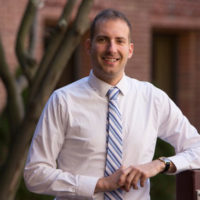
Bryan Kirschen
Bryan Kirschen is an Assistant Professor of Spanish and Linguistics at Binghamton University. He received his PhD from the University of California, Los Angeles, where his research focused on Judeo-Spanish and Sociolinguistics. His work has appeared in various journals, including Journal of Jewish Languages, Language and Communication, Language and Linguistics Compass, and Heritage Language Journal. He has served as the director of the National Authority of Ladino’s Shadarim delegation as well as chair of the Modern Language Association’s Sephardic Studies Forum.
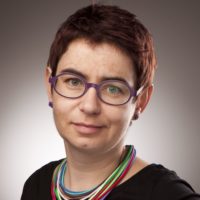
Kateřina Králová
Kateřina Králová is an Assistant Professor and Head of the Department of Russian and Eastern European Studies at Charles University, Prague. In her research, she focuses on reconciliation with the Nazi past, post-conflict societies, the Holocaust, the Greek Civil War and post-war reconstruction. She completed her Ph.D. with a thesis on Greek-German relations later published in Czech, Greek and German (Das Vermächtnis der Besatzung, Böhlau 2016/BPB 2017). Latest publications in English: “In the Shadow of the Nazi Past” (EHQ 2016), “Being traitors,” (SEEBSS 2017), “The ‘Holocausts’ in Greece” (Holocaust Studies 2017), “Being a Holocaust Survivor in Greece” (book chapter, CUP 2018). Currently, she is finalizing her second book about Holocaust survivors in Greece. In 2018 she initiated the establishment of the Herzl Center of Israel Studies at Charles University, Prague (Czech Republic).
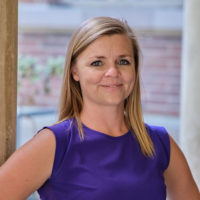
Caroline Luce
Caroline Luce is the Associate Director of the UCLA Alan D. Leve Center for Jewish Studies. She received her Ph.D. in American History from UCLA in 2013 with a focus on Jewish immigration, labor, and working-class culture in the American west. She has been awarded fellowships from the New York Public Library, the Southern California Historical Society, and YIVO Institute for Jewish Research and has published articles in American Jewish History, Shofar: A Journal of Jewish Studies, and In Geveb: A Journal of Yiddish Studies, and has published and edited a dozen digital exhibits as Chief Curator of the Alan D. Leve Center’s Mapping Jewish Los Angeles Project (www.mappingjewishla.org). Luce is developing a book manuscript entitled, Yiddish in the Land of Sunshine: Jewish Radicalism, Labor and Culture in Los Angeles, 1900-1950.
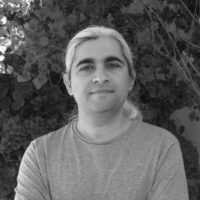
Mohsen Mohammadi
Mohsen Mohammadi is an ethnomusicologist affiliated with the UCLA Herb Alpert School of Music. His training and publications span historical research, ethnography, and performance, and his area of expertise is musical traditions of the Middle East and North Africa. His diverse interests include colonialism, religion, and power, as well as music and minorities. During the past two years at the UCLA Herb Alpert School of Music, he has organized symposia-concerts on the musical contributions of Armenian-Iranians and Jewish-Iranians. He has published several books and articles, of which some are available online: www.ucla.academia.edu/mohammadi

Simone Salmon
Simone Salmon is a graduate student in the Ethnomusicology Department at UCLA. She received her bachelor’s degree in music with concentrations in Music Theory and Harp Performance from UCLA (2011) and her master’s degree in Musicology from the University of Oxford (2014). She specializes in Sephardic Jewish music from the late Ottoman Empire and its Los Angeles diaspora. Her current focus is recordings of her family from Edirne, Turkey and the contemporary musical life of Edirneli Roma musicians in Istanbul. She plays the oud for several Middle Eastern, Balkan, and Sephardic ensembles and hosts her radio show, Los Bilbilikos, out of Santa Barbara, California, about music in Judeo-Spanish.
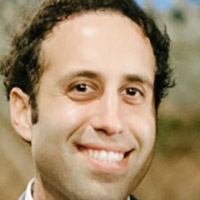
Chris Silver
Chris Silver serves as Segal Family Assistant Professor in Jewish History and Culture in the Department of Jewish Studies at McGill University. He earned his PhD in History from UCLA. Recipient of awards from the Posen Foundation, the American Academy of Jewish Research, and the American Institute for Maghrib Studies, Silver’s scholarship on Morocco, Algeria, and Tunisia has appeared in the International Journal of Middle East Studies, Hespéris-Tamuda, History Today, and the United States Holocaust Memorial Museum’s Holocaust Encyclopedia. He is currently completing a book manuscript on the subject of Jews, Muslims, and music in twentieth-century North Africa.
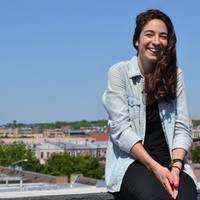
Rachel Smith
Rachel Smith is a doctoral student in Jewish History at UCLA. She received a BA/MA in Linguistic Anthropology from New York University (2010) and completed a dual-degree MA in Jewish History and Education at the Jewish Theological Seminary (2017). Her PhD research seeks to bridge Jewish communities across Europe and the Ottoman Empire by tracing changing ideas of cultural difference during the nineteenth century. She has worked on various public history projects including oral history archives, primary source databases, and historical exhibits for the Center for Jewish History and Tenement Museum in New York, the US Holocaust Memorial Museum in Washington DC, and the UCLA Alan D. Leve Center for Jewish Studies.
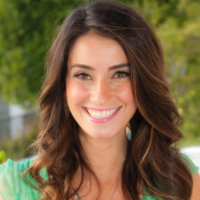
Saba Soomekh
Saba Soomekh is the Assistant Director of Interreligious and Intercommunity Affairs at the American Jewish Committee-Los Angeles and a lecturer at the Academy of Jewish Religion, where she teaches religious studies and Middle Eastern history courses. She is the editor of the book Sephardi and Mizrahi Jews in America (Purdue University Press, 2016) and the author of the book From the Shahs to Los Angeles: Three Generations of Iranian Jewish Women between Religion and Culture (SUNY Press, 2012). Her book was awarded the Gold Medal in the 2013 Independent Publisher Book Award in the Religion category. Saba was the Exhibition Coordinator of the exhibition at the Fowler Museum at UCLA entitled Light and Shadows: The Story of Iranian Jews. She was a consultant and participant for PBS’ documentary “The Iranian Americans.” She was also featured in an NPR story on Iranian Jews in America (“For Persian Jews, America Means ‘Religious Pluralism at Its Best”), and the Times of Israel wrote a piece on her entitled “Iranian Scholar Breaks Stereotypes While Studying Them.”
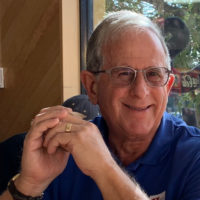
Richard Stein
Richard Stein is Professor Emeritus in the Department of English at University of Oregon. Born and raised in Los Angeles, he has recently returned home after over four decades of teaching on the faculties of Harvard, the University of California, Berkeley, and the University of Oregon, specializing in Victorian literature and the arts. His main connection to Sephardic Temple Tifereth Israel is through his wife, Carole, whose father (Victor Abrevaya) was a long-time member, officer, and part of the planning group for the Wilshire Blvd building.
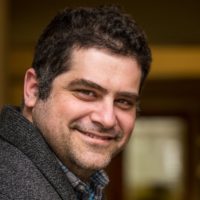
Lior B. Sternfeld
Lior B. Sternfeld is an Assistant Professor of History and Jewish Studies at Penn State University. His book Between Iran and Zion: Jewish Histories of Twentieth-Century Iran was published by Stanford University Press in 2018.
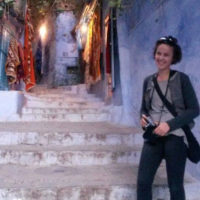
Jessie Stoolman
Jessie Stoolman is graduate student in the UCLA Dept. of Anthropology. Her dissertation focuses on processes of racialization in Spanish-colonized Morocco. Specifically, she compares and contrasts the ways in which the Spanish colonial apparatus in Morocco, through legal measures as well as discursive moves, differentially racialized Moroccan Jewish and formerly enslaved (haratin) communities in the region, conditionally incorporating Sephardic Moroccan Jews into their conceptualization of “whiteness.” An aspiring editor, she hopes to work for a publishing house that foregrounds the intimate (and inevitable) relationship between fiction-writing and academic research
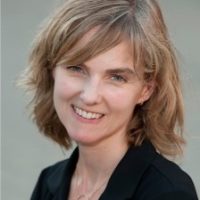
Marie-Pierre Ulloa
Marie-Pierre Ulloa is a lecturer in the French and Italian Department at Stanford University, working at the intersection of history, literature and cinema, combining archival research with oral history. With a multi-disciplinary background in the humanities and social sciences, her research focuses on France and North Africa. She is the author of Francis Jeanson, a Dissident Intellectual from the French Resistance to the Algerian War (Stanford University Press, 2008, also published in French and Arabic), and of Le Nouveau rêve américain. Du Maghreb à la Californie (CNRS éditions, Paris, 2019) about North African migration to California after World War II.
